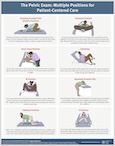Jun 05

Medication Abortion Aftercare Instructions (buccal miso)
Aftercare instructions to use with patients having a medication abortion and using misoprostol buccally.
Help Us Protect Access to Sexual and Reproductive Health Care Today!
Jun 05

Aftercare instructions to use with patients having a medication abortion and using misoprostol buccally.
Jun 05

This workflow provides guidance on how to provide medication abortion to patients remotely, either via phone or computer.
Jun 05

Aftercare instructions to use with patients having a medication abortion and using vaginal misoprostol.
Jun 05

Consent form for a remote abortion with pills. Reading Grade Level (Flesch-Kincaid Grade Level): 7.7
Jun 05

Protocol for providing medication abortion care using mifepristone and misoprostol to patients remotely.
Jun 05

Informal role-play script for use with two or three people that teaches the basic elements of medication abortion counseling.
Jun 04

This poster is based on our The Pelvic Exam: Multiple Positions for Patient-Centered Care Fact Sheet. It provides illustrations and descriptions of different options for pelvic exams. This resource was informed by Table Manners: A Guide to the Pelvic Examination for Disabled Women and Health Care Providers and conversations with disability justice advocates. Illustrations for…
Jun 04

This fact sheet explains how to use medication (mifepristone and misoprostol) for an abortion with simple to follow steps and illustrations.
Jun 04

This factsheet provides a simplified guide for comparing two popular medication methods for an abortion. The factsheet compares and contrasts using mifepristone and misoprostol versus using misoprostol alone. Get answers to questions such as: “How painful is it?”, “Can I still have children after?” and “What will happen?”
Jun 04

This fact sheet explains the difference between how Emergency Contraceptive (EC) pill and the abortion pill (medication abortion) work, what they contain, what they cost, how to take them, and whether they are covered by insurance.